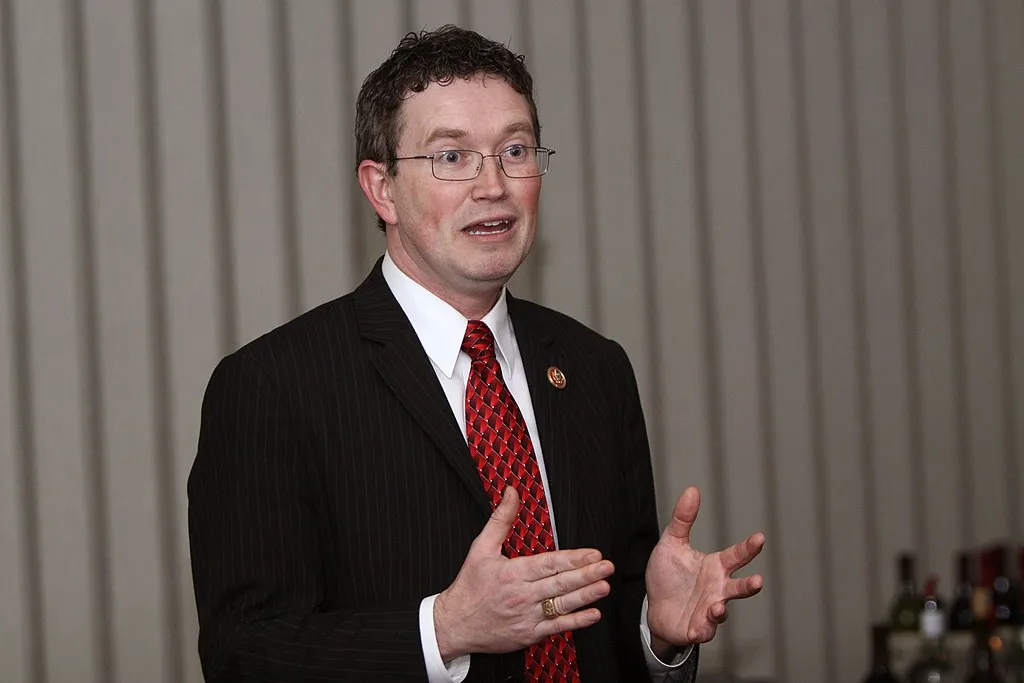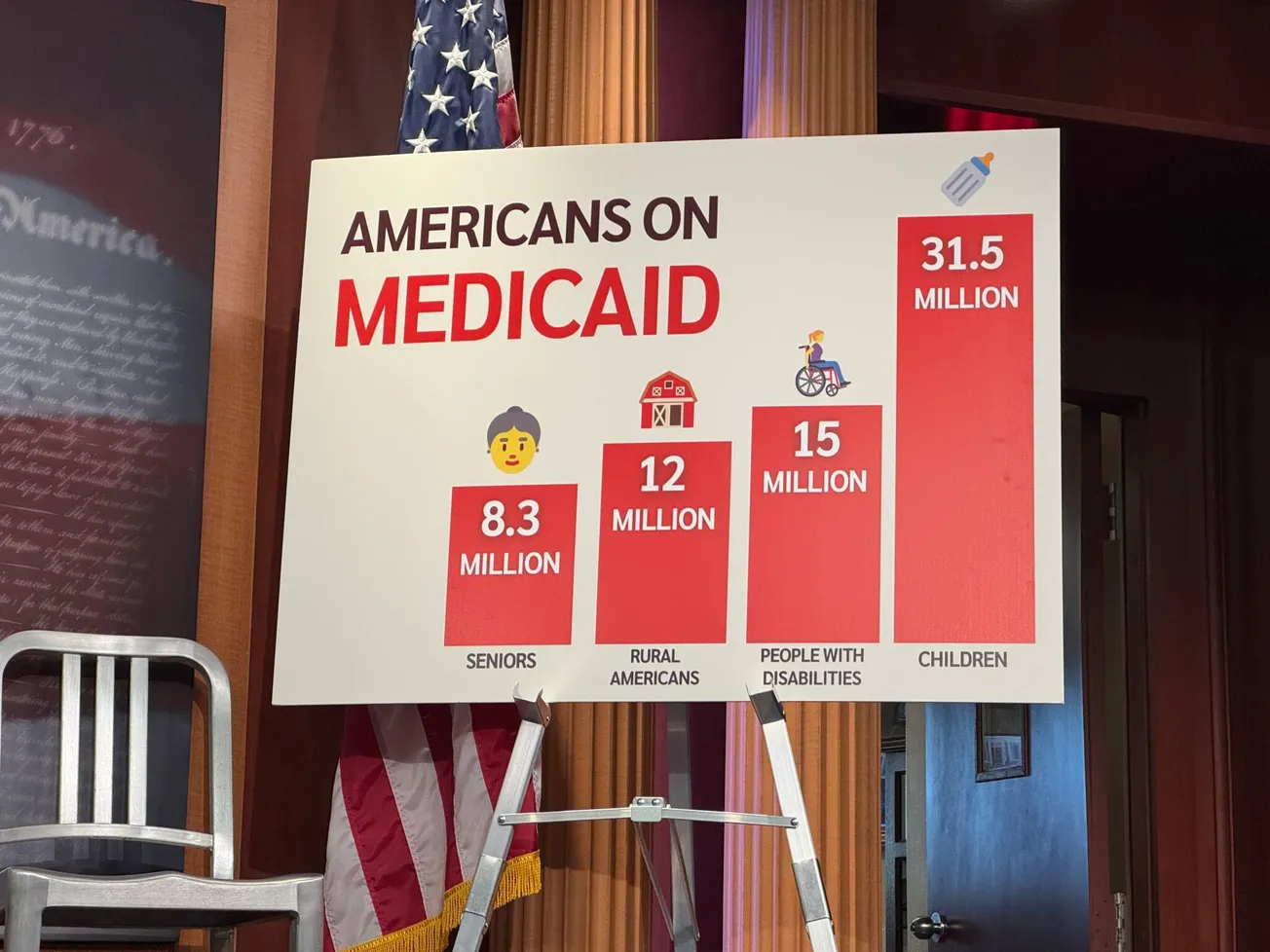Northern Kentucky Congressman Thomas Massie voted in favor of the debt limit bill that suspends the country’s borrowing limit until January 2025 and reduces the federal deficit but also introduced potential spending cut provisions if Congress doesn’t pass mandatory appropriation bills.
Massie’s vote just days earlier in the House Rules Committee, however, proved crucial to the Fiscal Responsibility Act moving to a House floor vote, where it passed Wednesday night. It then passed the Senate on Thursday.
The 99-page bill suspends the $31.4 Trillion debt limit until January 2025. It cuts federal spending by $1.5 trillion over the next decade, according to the Congressional Budget Office, which includes $11 billion returned from COVID-19 pandemic funding.
The Rules Committee voted 7-6 on a rule that governed debate over the debt bill, which ensured the bill reached the House and would pass the lower chamber — Massie’s ‘yes’ vote gave the rule a narrow margin that allowed the bill to pass by the June 5 deadline to avoid default.
“I want to see the rule; it’s not printed yet, it’s not been read, but I anticipate voting for this rule,” Massie said in committee. “When people want to express their ideology, the floor of the House on the actual final passage of the bill is the place to do that. What do the 13 of us owe the rest of Congress? We owe them an honest shake and a playing field that doesn’t change.”
Massie, who developed a pin he wears in Congress showing the U.S. National Debt, is often a sharp critic of the country’s increasing debt.
The Lewis County Republican has been called “Mr. No” but voted in favor of the rule only after he highlighted a provision to the bill that cuts discretionary spending by one percent unless Congress passes the mandatory 12 spending bills by the end of the calendar year.
The 1% cut would apply to all spending, including military and veteran programs — Medicare and Social Security would be exempt.
“There is one way this bill got better, and it is this one percent cut,” Massie said during the Rules Committee meeting, noting that Democrats and Republicans agreed to the cuts if they can’t pass the required appropriation bills.
Often, Congress jams all 12 bills into an “omnibus” spending bill that must pass by the end of the year to avoid a government shutdown. Massie said in the Rules Committee meeting that he expects the House to get to the required spending bills.
“On January 1, 2024, that’s a one percent cut, and we can’t sit here on that day and point fingers at the other party,” Massie said. “Because we’re going into this together, assuming this passes on the floor. Both parties have agreed. The pain will be to both sides.”
During the meeting, Massie said he didn’t join the powerful Rules Committee to exert his ideology.
“My interest in being on this committee was not to imprint my ideology,” Massie said. “I think that’s an inappropriate use of the Rules Committee.”
He didn’t respond to requests for comment for this story, but he told conservative talk show host Glenn Beck this week that if the deal blew up in the House, it would have likely led to Kentucky Sen. Mitch McConnell inserting himself into the deal — something he said would cause a “clean debt limit increase,” meaning the debt limit would be raised without any cuts occurring.
“They’ll send it over to the House, you’ll have ten Republicans who will cross the aisle and vote with [House Democratic Leader] Hakeem Jeffries, and you get a clean debt limit increase,” Massie told Beck on BlazeTV. “So what we’re talking about here is a disagreement – not on ideology. I’m not here to say this is the best deal ever. It’s a disagreement on how we go forward and what we get if we blow this up.”
McConnell said earlier in the week he would vote to pass the legislation if it moved through the Senate, and when the bill passed the Senate, he reiterated his support.
“Four months after Speaker McCarthy invited President Biden to begin negotiating a resolution to the looming debt crisis, an important step toward fiscal sanity will finally become law,” McConnell said in a statement Friday. “Thanks to House Republicans’ efforts, the Fiscal Responsibility Act avoids the catastrophic consequences of default and begins to curb Washington Democrats’ addiction to reckless spending that grows our nation’s debt.”
Kentucky Sen. Rand Paul voted “no” on the bill.
“Sixty percent of Americans say Congress should only raise the nation’s debt ceiling if it cuts spending at the same time,” Paul said. “I would guess the Americans answering that poll meant real cuts in spending, not an annual increase of one percent above already bloated levels of COVID-19 spending. Bold actions must be taken to defeat our mounting national debt, and my conservative alternative to the Biden-McCarthy deal gives us a real opportunity to get our fiscal House in order.”
--30--
Written by Mark Payne. Cross-posted from Link NKY.








